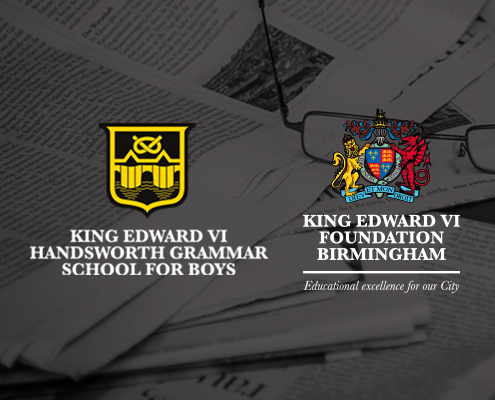Liz Kessler: Award-Winning Author (A Virtual Visit to HGS)
Liz Kessler, the multiple award-winning author of ‘When the World Was Ours’, visited HGS – albeit virtually – to share her experiences of writing what is a very touching novel inspired by the circumstances her family faced as a result of the Holocaust.
During the visit, we learnt many things about the war and I was personally intrigued by how the main storyline, characters and settings were crafted.
In the discussion, we learnt about the journey that Liz Kessler took across Europe to research information for her book. She shared personal letters and documents that defined her family’s past including a passport with a sign indicating Jewish identity. The world has since changed from the taxing war and concentration camps and other sites are still around such as sites in Auschwitz. We also were told about the tour guide whilst exploring a region in Europe and how he expressed some form of distaste against Jews thus showing us that Antisemitism still exists in pockets. Antisemitism is marginalising Jewish people from other people or a form of racism against Jews. As Liz Kessler was explaining the meaning of this you start to see the importance of modern-day racism, which is still a huge problem, and how we should respect one another for who we are.
Furthermore, we discovered that Liz Kessler’s great grandmother, Elsa, was a victim of the war and that the character Greta is a symbol of those who speak out against the subjugation of marginalised groups. We learned that Leo represents the Jews who escaped Nazi-controlled areas and that Elsa represents the other outcome. Max represents those who work or have joined with the Nazi rule through force or pressure. He is the inner part of humanity that compels us to question wrongful things.
Nearing the end of the interview, Liz Kessler detailed the writing process – from research to final production. We were told that it took serious determination and thorough research to produce ‘When the World Was Ours’. Kessler herself said that writing the book itself was one of the hardest things to do as throughout its creation she had to come to terms with the hard-hitting history behind Nazi rule and how almost 80 years on, regimes continue to ostracise minority groups. This, for her – and us – was an incredibly moving and emotional part of her discussion and we will never forget the impact that this visit had on us.
Thanks to this, we not only have a fantastic story to read but an understanding of how looking back to the past allows us to make sense of today.
‘When the World Was Ours’ shows us that the light of human kindness can shine even in the darkest of times.
Kirushikan Sunthereswaran








